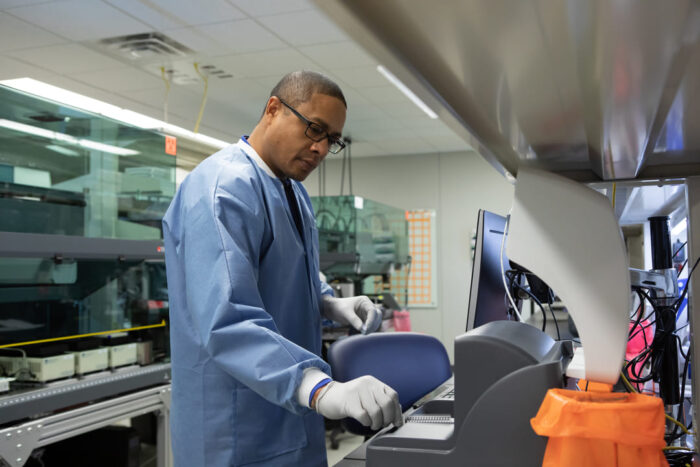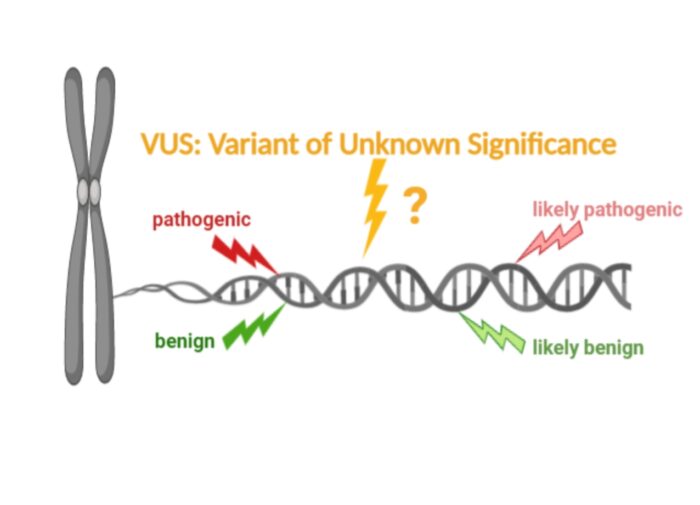
Genetic testing panels represent a crucial advancement in genetics and have revolutionized how we diagnose and understand inherited diseases. These panels are comprehensive sets of genetic tests designed to identify mutations or variations in a person’s DNA associated with specific conditions or traits. These panels provide valuable information for clinical diagnosis, risk assessment, and personalized treatment strategies by examining specific genes or genomic regions linked with particular disorders.
Introduction
Genetic testing has evolved significantly over the past few decades, transitioning from single-gene testing to more comprehensive approaches like genetic testing panels. These panels are powerful diagnostic tools that allow healthcare professionals to simultaneously analyze multiple genes associated with a particular disease or related conditions. This targeted approach has proven invaluable in identifying the genetic basis of various disorders and enabling more precise medical interventions.
Types of Genetic Testing Panels

Disease-Specific Panels
Disease-specific panels focus on genes associated with a particular condition or related disorders. For instance, panels may be designed to test for mutations linked to cardiovascular diseases, neurological disorders, or various types of cancer. These panels are particularly useful for individuals with a family history of a specific disease or those showing symptoms of a particular condition.
Carrier Screening Panels
Carrier screening panels assess the likelihood of an individual passing on a genetic condition to their offspring. These Genetics Testing Panels are crucial for individuals planning to start a family, as they can identify carriers of recessive conditions, providing them with the information needed to make informed reproductive decisions.
Whole Exome Sequencing (WES) and Whole Genome Sequencing (WGS)
While not traditional panels in the strictest sense, WES and WGS represent a comprehensive approach to genetic testing. WES examines all genes’ protein-coding regions (exons), while WGS analyzes the entire genome. These methods are particularly useful in cases where a diagnosis remains elusive after targeted panel testing, as they can identify novel or rare genetic variants.
Applications of Genetic Testing Panels

Clinical Diagnosis
One of the primary applications of Genetics Testing Panels is in clinical diagnosis. They provide healthcare professionals with a powerful tool to confirm suspected genetic conditions, enabling more accurate and timely treatment decisions. For example, in the case of hereditary breast and ovarian cancer syndrome, panels that include genes like BRCA1 and BRCA2 can definitively diagnose individuals at risk.
Risk Assessment and Prevention
Genetic testing panels can assess an individual’s predisposition to certain diseases, allowing for proactive measures to mitigate risks. For instance, identifying mutations associated with familial hypercholesterolemia can prompt interventions to reduce cholesterol levels, ultimately lowering the risk of cardiovascular events.
Personalized Treatment Plans
Pharmacogenomic panels are instrumental in tailoring medication regimens to individual patients. By understanding how a person’s genetics influence drug metabolism, healthcare providers can select the most effective and safe treatment options, optimizing therapeutic outcomes.
Reproductive Planning
Carrier screening panels play a crucial role in family planning. Identifying carriers of recessive conditions allows couples to make informed decisions about conceiving, pursue options like in vitro fertilization with pre-implantation genetic testing, or explore adoption.
Research and Drug Development
Genetic testing panels contribute significantly to medical research and drug development. Identifying genetic factors associated with diseases provides valuable insights into their underlying mechanisms, aiding in developing targeted therapies.
Benefits of Genetic Testing Panels

Early Detection and Intervention
Genetic testing panels allow for the early detection of genetic conditions, often before symptoms manifest. This early knowledge enables timely interventions, potentially improving affected individuals’ outcomes and quality of life.
Precision Medicine
By providing detailed genetic information, panels facilitate the practice of precision medicine. Tailoring treatments to a patient’s genetic profile maximizes therapeutic efficacy while minimizing adverse effects.
Informed Decision-Making
Genetic testing panels empower individuals and families with information to make informed decisions about their health, reproductive choices, and lifestyle.
Cost-Efficient
Comprehensive panels can be more cost-effective than conducting multiple single-gene tests, especially when considering a broad range of conditions.
Research Advancements
The data generated from genetic testing panels contribute to ongoing scientific research, leading to a deeper understanding of genetic diseases and developing new therapeutic approaches.
Limitations and Challenges

Variants of Unknown Significance (VUS)
Not all genetic variations identified by panels have a clearly defined clinical significance. Variants of unknown significance can complicate the interpretation of results, potentially leading to uncertainty in clinical decision-making.
Psychological Impact
Receiving information about genetic predispositions to diseases can have psychological and emotional consequences for individuals and families. Proper pre-and post-test counseling is crucial to help individuals process and cope with this information.
Ethical and Legal Considerations
Genetic testing panels raise ethical and legal questions regarding privacy, consent, and potential discrimination based on genetic information. Striking a balance between providing valuable medical insights and safeguarding individuals’ rights is essential.
Limited Scope
While comprehensive, Genetics Testing Panels are not exhaustive. They only assess predetermined genes or genomic regions, potentially missing rare or novel variants in genes not included in the panel.
Ethical Considerations

Informed Consent
Obtaining informed consent is paramount in genetic testing. Individuals must be fully aware of the implications, potential results, and the use of their genetic information before undergoing testing.
Privacy and Confidentiality
Protecting the privacy of genetic information is critical. Robust measures must be in place to ensure that sensitive data is stored and transmitted securely and that it is only accessible to authorized individuals.
Non-Discrimination
Policies and laws must be in place to prevent genetic discrimination in healthcare and other areas such as employment and insurance.
Genetic Counseling
Access to genetic counseling before and after testing is essential. It ensures that individuals have the support and resources needed to understand and navigate the implications of their genetic information.
Future Directions
Genetic testing panels are likely to become even more sophisticated as technology advances. Integration with other omics data (such as proteomics and metabolomics) may provide a more comprehensive understanding of disease processes. Additionally, artificial intelligence and machine learning advancements may enhance our ability to interpret complex genetic data.
Conclusion
Genetic testing panels represent a transformative tool in modern medicine, enabling precise diagnoses, personalized treatment plans, and informed decision-making for individuals and families. While they offer numerous benefits, it is essential to approach their use with ethical considerations in mind and to recognize their limitations. As technology progresses, genetic testing panels are poised to play an increasingly pivotal role in healthcare, offering hope for improved outcomes and quality of life for countless individuals affected by genetic conditions.






